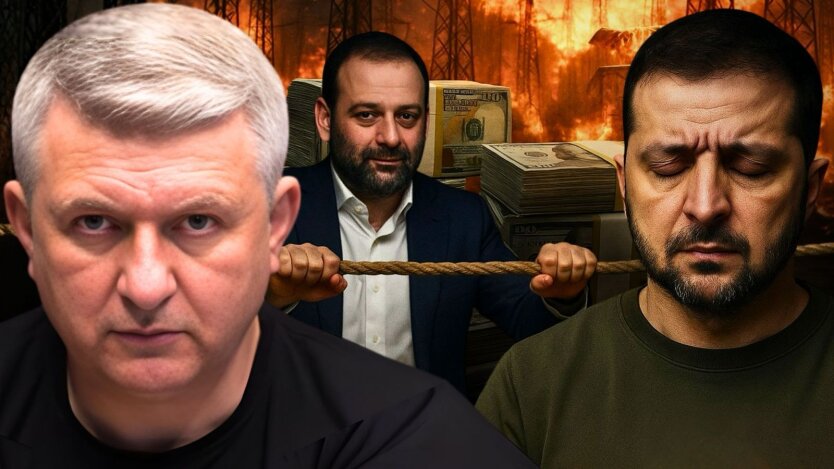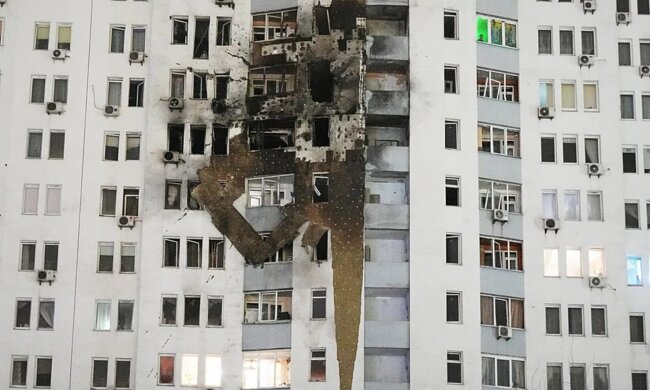Political analyst Yuriy Romanenko conducted a deep analysis of the corruption scandal in the energy sector, dubbed "Mindychgate," in his solo broadcast and warned of its catastrophic consequences for the current government. According to the expert, what is happening resembles autumn 2013, when the countdown to the fall of Viktor Yanukovych's regime began.
Repeating History
Romanenko drew detailed historical parallels between the current situation and the events that preceded Euromaidan. "What is happening now very much resembles what was happening in autumn 2013, when Yanukovych at the peak of his power was already halfway through his journey to the end of his career," the political scientist noted.
The analyst recalled that in 2013 a chain of events began that led to Yanukovych's loss of power: the opposition's protest action on May 17, the milk war with Russia, the gradual destabilization of society on the eve of the EU summit in Vilnius. "Gradually, a situation began to form regarding Yanukovych's delegitimization, who was then stronger than ever," Romanenko emphasized.
The expert recalled his trip to China in spring 2013, when CCP representatives asked him what could threaten Yanukovych with such strong internal legitimacy. "I simply said that Yanukovych would not make it to the end of his first term," the political scientist recounted, listing three basic conflicts that worked against the then-president: between oligarchs, between Yanukovych's family and oligarchs, and between oligarchs and the middle class.
Government Carelessness
Romanenko paid special attention to the carelessness of the current government, comparing it to the behavior of Yanukovych's entourage. "People are so confident that they've grabbed God by the beard that they can allow themselves to discuss like this with minimal concerns about security," the analyst stated.
The political scientist noted the absurdity of the situation when corruption schemes were discussed not only in Mindych's apartment, but also in the apartment of Derkach, who is a senator of the Russian Federation. "He fled there long ago, but continued to steer nuclear energy through his agents of influence," Romanenko emphasized.
The expert reminded that many national secrets can be learned simply by visiting restaurants near the relevant institutions of power. "Such carelessness was also characteristic of the Regionals, though to a lesser extent, because they were more experienced," the political scientist noted.
Blow to Legitimacy
Romanenko emphasized that "Mindychgate" delivers a colossal blow to Zelensky's legitimacy. "This determines how the war will end, whether it will end in the near future, and what the range of events will be after all this," the analyst stated.
The political scientist revealed three basic conditions of Russia for freezing the conflict, which were discussed at Trump's meeting with Putin in Alaska in Anchorage: reaching the administrative borders of Donbas, removing Zelensky in elections (announcing elections and preventing his victory or non-participation), and Ukraine's neutrality.
"One of the main questions is whether the Americans in the person of the Trump administration participated in making all this actualize as quickly as possible, or is this our internal move," Romanenko wondered.
Choice of Topic and Timing
The expert drew attention to the non-randomness of choosing specifically the energy topic for revelations. "The energy topic was chosen not by chance, because it is synchronized with strikes on our energy sector, when everyone already feels the consequences, when people have become aware of the problems," the political scientist explained.
Romanenko noted that the information that was in NABU could have been released in summer, when disruptions had not reached such critical heights. "The side delivering the blow understands very clearly in what context the blow will be most effective," the analyst stated.
The political scientist warned that new revelations lie ahead: "I think a series will begin that concerns not energy anymore, not Energoatom and Naftogaz, it will concern military procurement, comrade Umerov, who, as I understand, is right now in Istanbul thinking whether to return or not."
Historical Analogy with 1916-1917
Romanenko drew a deep historical analogy with Russia in 1916-1917, when the empire faced an internal political crisis amid military exhaustion. "Everything happening reminds me of the 1917 situation for absolutely different players," the political scientist stated.
He recalled that in 1917 all participants of World War I – Russia, Germany, France, Great Britain, Austria-Hungary, the Ottoman Empire – were exhausted to the limit. "Here we are talking about Ukraine and Russia primarily. This exhaustion was determined by internal pressure on the governments of these countries," Romanenko explained.
The analyst recalled the murder of Rasputin, who concentrated state management on himself, being "an absolutely external person to the system," like Mindych today. "Rasputin's murder was directly related to his influence on the emperor and the existing elites' inability to reach the emperor," the expert noted.
Two Development Scenarios
Romanenko predicted two possible scenarios: "I think that in the near future, perhaps within two weeks, there will be some final fork, after which there will be a track to the right or left."
According to the political scientist, either the situation will begin to subside upon certain circumstances and meeting some conditions, or the country could descend into a track of internal civil conflict. "The terrible truth is that there is reason for it. We will tear ourselves apart with our own hands," Romanenko warned.
Zelensky's Mistakes
The analyst listed Zelensky's key mistakes: excluding a significant part of political elites from decision-making, centralizing everything on "five-six managers" who "were guilty of corruption on scales no smaller than predecessors, or even larger."
"Stability is always based on inclusion," Romanenko emphasized, noting that Zelensky, like Nicholas II, took all responsibility upon himself, which led to narrowing the space for maneuver.
The political scientist stated: "Internal legitimacy is always a cornerstone position that allows a ruler to communicate with the external world. If he has weak internal legitimacy, then external players will always look for whom they can act through."
In conclusion, Romanenko expressed confidence that in the coming months the situation with the war will be resolved in the form of freezing, since virtually all sides have reached exhaustion of their resource base.





























